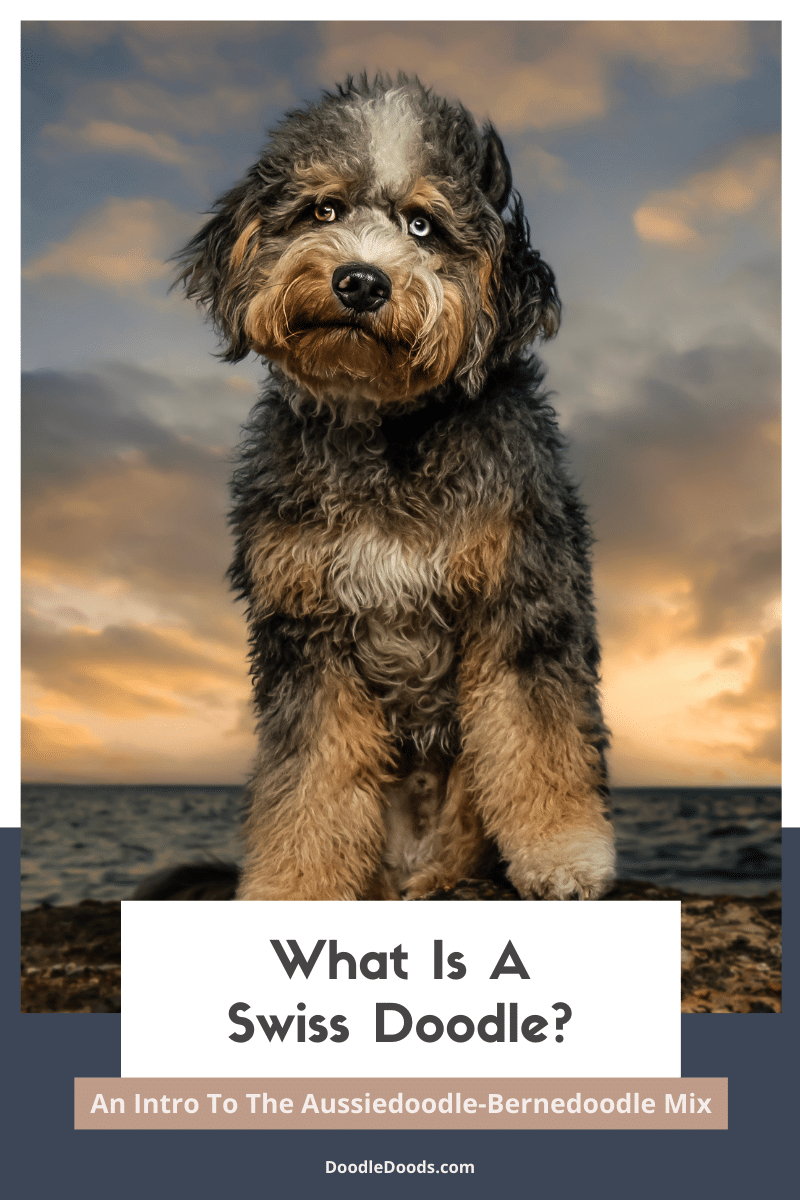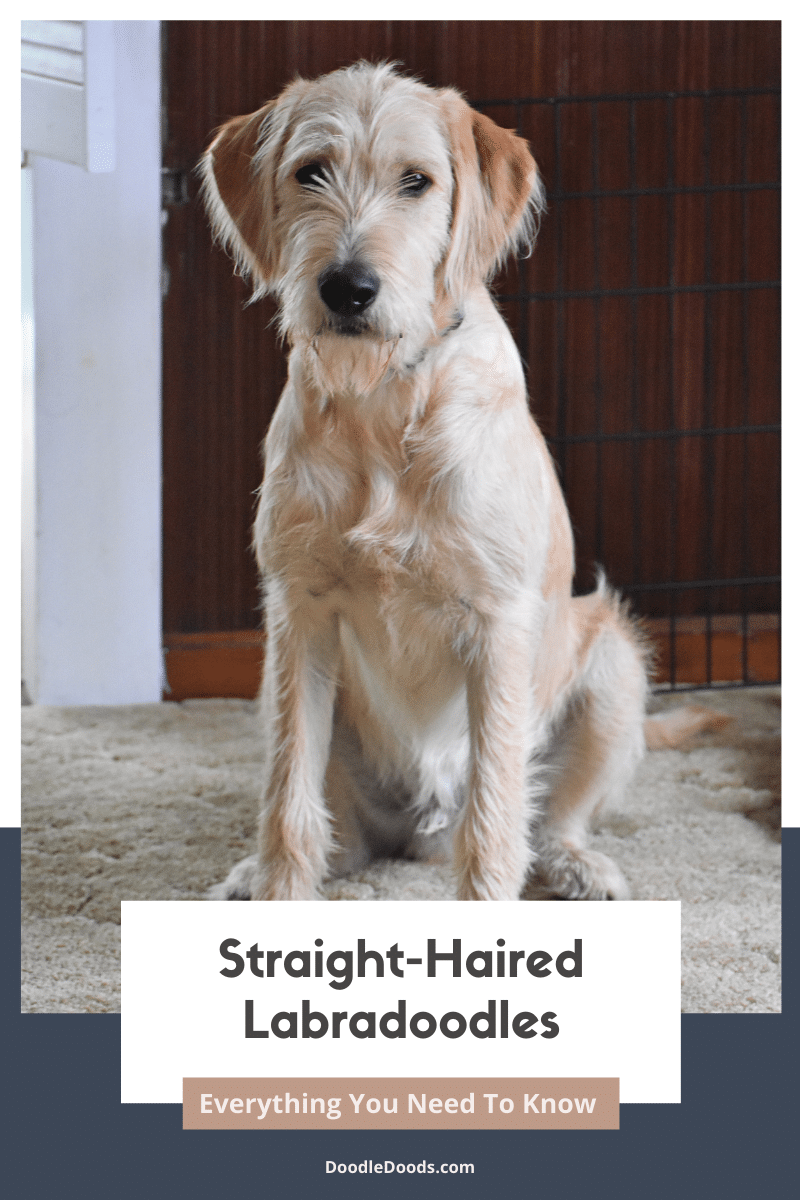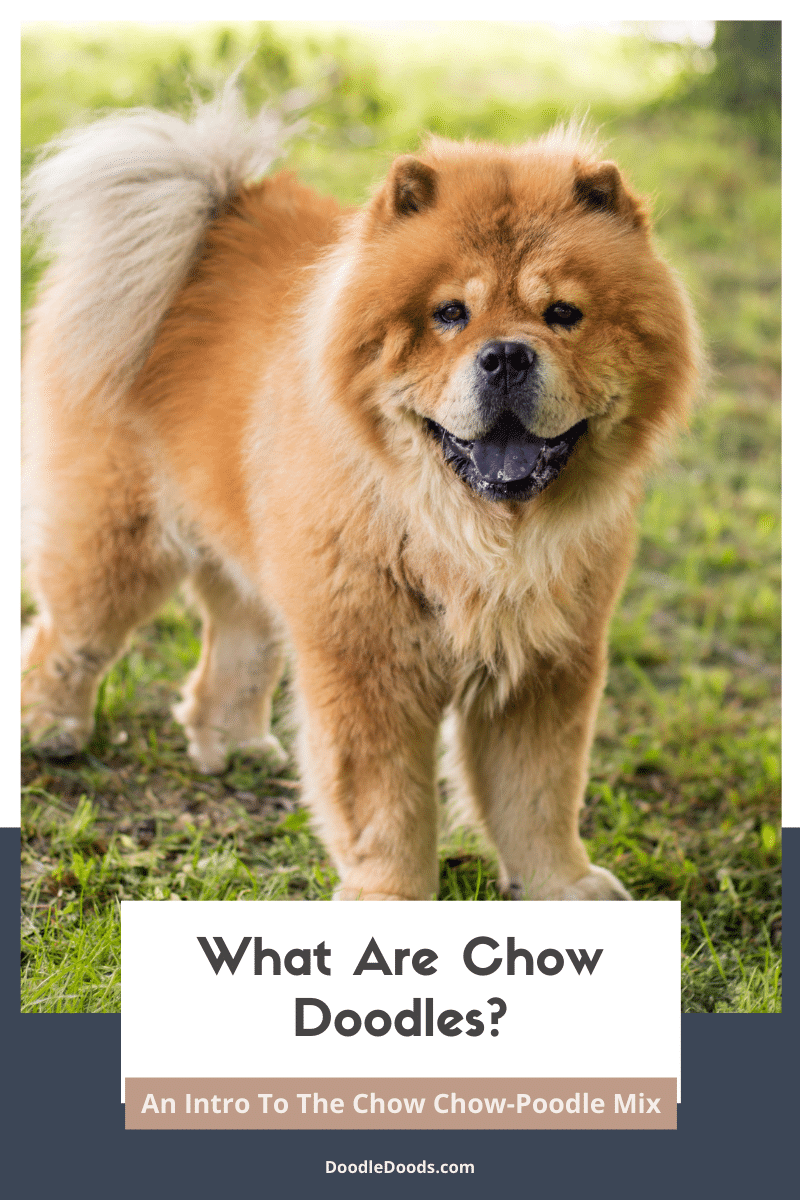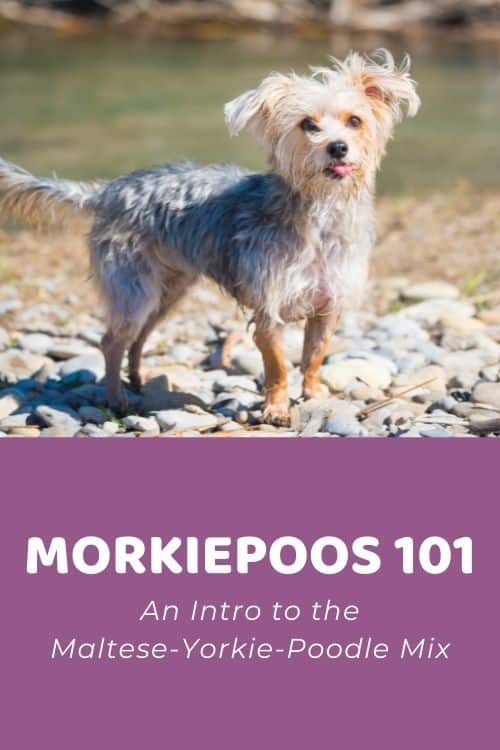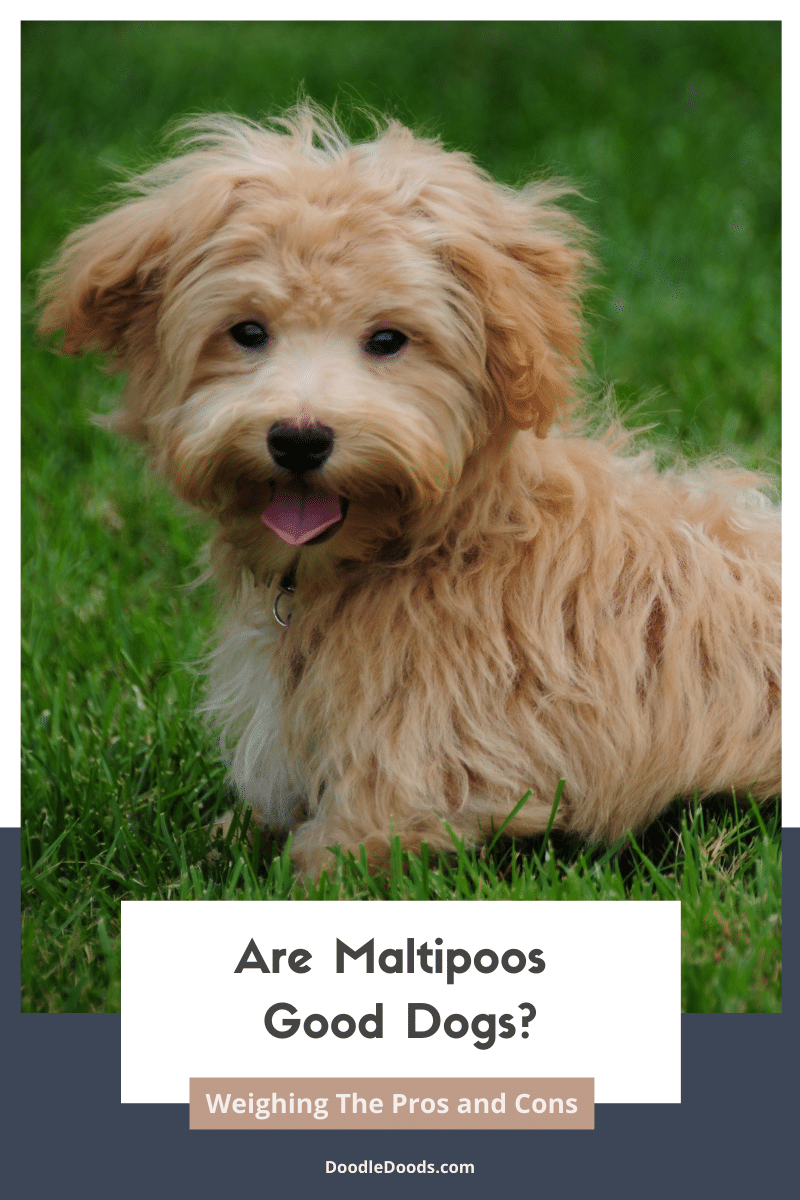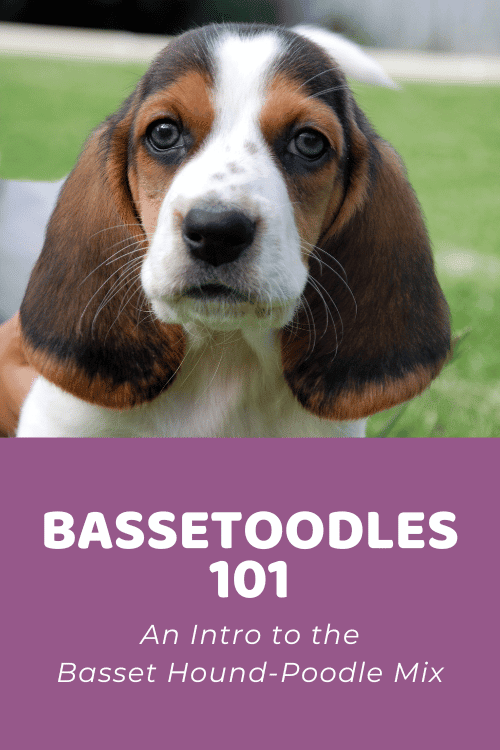The Swiss Doodle, also known as the Australian Mountain Doodle, is an adorable cross made up of two of the greatest Poodle mixes – the Aussiedoodle and Bernedoodle. In this guide, we’ll discover what amazing traits the Swiss Doodle has considering that their Doodle parents are already wonderful companions in their own rights. But what can we expect when crossing an Aussiedoodle and a Bernedoodle? Keep on reading to learn more about the Swiss Doodle!
Table of Contents
- What Is A Swiss Doodle?
- Swiss Doodle Physical Appearance
- Swiss Doodle Pictures (Puppy & Adult)
- Swiss Doodle Size: How Big Will A Swiss Doodle Get?
- Swiss Doodle Variations & Generations
- Personality & Temperament
- Swiss Doodle Health: Do Swiss Doodles Have Health Problems?
- Swiss Doodle Lifespan: How Long Do Swiss Doodles Live?
- Exercise Requirements
- Training A Swiss Doodle
- Swiss Doodle Coat Care & Grooming
- Where Can You Get Swiss Doodle Puppies?
- Swiss Doodle: FAQ
What Is A Swiss Doodle?
The Swiss Doodle, also known as the Australian Mountain Doodle or Aussie Mountain Doodle, is a triple hybrid cross between the Australian Shepherd, Bernese Mountain Dog, and Poodle breeds. The Swiss Doodle is usually bred by crossing an Aussiedoodle with a Bernedoodle. By rough estimates, these pups will have about 25% Australian Shepherd, 25% Bernese Mountain Dog, and 50% Poodle in their genetic makeup. However, that’s not always the case, as it all depends on the generation of a Swiss Doodle. But more on that later.
In fact, Swiss Doodles are what we call Double Doodles. That’s because they’re the offspring of two already established Doodle breeds. While both Aussiedoodles and Bernedoodles are by now one of the most well-known and popular Poodle mixes, the Australian Mountain Doodle isn’t as established just yet. But considering how precious they are, we’re expecting to see more and more breeders venture into the Double Doodle world.
Swiss Doodles combine the best traits of Aussiedoodles and Bernedoodles. They’re very intelligent, fun-loving, affectionate, mellow, and moderately active dogs. Of course, each Australian Mountain Doodle can be quite different, depending on which side of their lineage they take more after. Oh and, let’s not forget that they also tend to have those low-shedding and hypoallergenic coats that are so coveted by Doodle lovers.
Swiss Doodle Physical Appearance
Swiss Doodles are medium to large-sized dogs with a sturdy and athletic build. They have very thick, fluffy, long coats that are usually curly or wavy. They have the distinctive Doodle-like teddy bear look with big expressional eyes and cute, floppy ears.
Swiss Doodle Colors
The fun thing about Swiss Doodles is that they can come in many, many colors and coat patterns. They may inherit the signature Australian Shepherd red or blue merle coat. Or, some Swiss Doodle pups may lean more on the Bernese Mountain Dog’s side with their tri-colored coats with black, white, and brown colorings.
But keeping in mind that they also have a good amount of Poodle genes in them, Australian Mountain Doodles may just as well come in solid coat colors or patterned coats ranging from dark blacks and browns to lighter grays, reds, silvers, and creams. Some beautiful patterns you might come across include phantom, parti, and tuxedo, to name a few.
Coat, Shedding, & Hypoallergenic Level
Swiss Doodles have very dense curly or wavy coats. But in some instances, they may also have thick straight coats. After all, both Australian Shepherds and Bernese Mountain Dogs have straight double coats, so we gotta take these genes into account as well.
The great thing about Swiss Doodles is that they’re generally very low-shedding dogs, making them excellent companions for people with allergies. Or, if you just hate vacuuming up dog hair every single day. Reputable breeders will usually choose their breeding Aussiedoodles and Bernedoodles based on their coat genetics, striving to produce the lowest shedding Swiss Doodles possible.
However, in some cases, a Swiss Doodle may have a lightly shedding undercoat. Again, both the Australian Shepherd and Bernedoodle are double-coated breeds and they’re generally not the safest options for people with severe dog allergies. But as we know, when adding the Poodle genes into the mix, the shedding problem is greatly reduced. Especially if your Doodle pup is single-coated.
Regardless of a Swiss Doodle’s coat type, they’re always high-maintenance dogs. They need to be groomed often to prevent matting, and if your Dood also has a double coat, grooming helps minimize shedding, too.
We do have to mention that curly-coated Australian Mountain Doodles are generally the most hypoallergenic of them all. Not only are these pups single-coated, their curly locks hold onto any loose dog hair that would otherwise fall out of the coat. Still, wavy-coated Doods are also generally safe for people with allergies, especially those who don’t have an undercoat.
Swiss Doodle Pictures (Puppy & Adult)
If you’ve ever seen an Aussiedoodle and a Bernedoodle, you know very well how beautiful and endearing they look. It shouldn’t come as a surprise that their Swiss Doodle offspring look just as cute, combining the gorgeous looks of both of their Doodle parents.
| Gray & White Swiss Doodle | @rocky_swiss_doodle |
| Brown Swiss Doodle | @lola_the_swissdoodle |
Swiss Doodle Size: How Big Will A Swiss Doodle Get?
The Swiss Doodle, or the Australian Mountain Doodle, is a medium to large-sized dog that can weigh anywhere from 30 to 60 pounds. Their height can range between 19 and 25 inches. The Swiss Doodle most commonly comes in two size categories – Standard and Mini Swiss Doodle. The Standard Swiss Doodle weighs between 50 and 60 pounds with their height ranging between 23 and 25 inches, whereas the smaller Mini Swiss Doodle weighs about 30 to 40 pounds and a height of around 19 to 22 inches.
By the way, as both Bernedoodles and Aussiedoodles also come in the Toy size category, there’s also the possibility to breed super tiny Toy Swiss Doodles, sometimes also referred to as Micro Mini Swiss Doodles. These pups will likely fall within the 10 to 20 pound weight range, having a height of 10 to 15 inches at the shoulder. But since the Aussiedoodle-Bernedoodle mix is relatively rare, the Toy Swiss Doodle is quite difficult to come across.
| Toy / Micro Mini Swiss Doodle | Mini / Medium Swiss Doodle | Standard Swiss Doodle | |
| Weight | 10-20 pounds | 30-40 pounds | 50-60 pounds |
| Height* | 10-15 inches | 19-22 inches | 23-25 inches |
| When Full-Grown? | 7.5-11 months | 11-13 months | 12.5-16 months |
*A dog’s height is measured from its withers – the highest part of its shoulder blades.
With hybrid breeds like the Australian Mountain Doodle, it can be somewhat difficult to predict the outcome. To achieve more consistency and control over the litters, ethical breeders would mate two similar-sized dogs. Usually, the size of a Doodle’s parents is a great indicator of their full-grown size.
Swiss Doodle Variations & Generations
If you know a little about Doodles, you’ve probably heard all sorts of complicated terms like first-generation or F1 Aussiedoodle, or perhaps a first-generation backcross Bernedoodle, a.k.a F1b Bernedoodle.
With Double Doodles like the Australian Mountain Doodle, the process is a bit different. That’s because Aussiedoodles and Bernedoodles are already at least first-generation Doodles, if not later, making the Swiss Doodle always a second-generation or multigenerational Doodle.
Here’s a helpful chart explaining all the possible Swiss Doodle generations and how they vary:
| 1st Parent | 2nd Parent | % Australian Shepherd* | % Bernese Mountain Dog* | % Poodle* | |
| F2 Swiss Doodle (second-generation) | F1 Aussiedoodle | F1 Bernedoodle | 25% | 25% | 50% |
| F2B Swiss Doodle (second-generation backcross) | F1 or F1b Aussiedoodle | F1 or F1b Bernedoodle | Varies | Varies | 62.5% |
| F2B Swiss Doodle (alternate cross) | F2 Swiss Doodle | Poodle | 12.5% | 12.5% | 75% |
| F3 / Multigen Swiss Doodle | F2 Swiss Doodle or higher | F2 Swiss Doodle or higher | Varies | Varies | Varies |
*These are generic calculations only – genetics are rarely mathematically accurate.

As you can see, there are multiple different ways to produce a litter of Swiss Doodles. And depending on how they were bred and the generation of their parents, their genetic makeup can also vary. This in turn will affect the Swiss Doodle’s coat type and potential for shedding, looks, and even their personality or activity levels. For instance, the more Poodle genes they have, the more likely it is for them to have curly single coats.
Personality & Temperament
Swiss Doodles are exceptionally loving, playful (even goofy!), intelligent, and friendly dogs. Just like their Aussiedoodle and Bernedoodle parents. But considering that Aussiedoodles can be very excitable and super energetic, while the Bernedoodle is way more laid back and calm, there’s never a guarantee how a Swiss Doodle pup may turn out. Some lean more on the Aussie’s more energetic side, whereas others take more after the Bernese with its more chilled nature. But make no mistake, there’s not a single aggressive bone in a Swiss Doodle’s body. Some are just more rambunctious than others!
Swiss Doodles are actually very gentle dogs and they get along well with adults, elderly, and children. And if you properly socialize your pooch from a young age, they’ll have no problem sharing you with other pets in the household, albeit they may sometimes have the urge to herd smaller members of the fam.
Australian Mountain Doodles are also highly intelligent and perceptive dogs. They absolutely adore their human family and they love spending time with them, especially when getting to be the center of attention. They’re very loyal and they easily bond with their most favorite humans on this planet.
The only downside of this insanely loving and loyal nature is that they’re also prone to separation anxiety. Therefore, we wouldn’t recommend a Swiss Doodle for someone who has to leave their dog alone for long hours at a time.
Swiss Doodle Health: Do Swiss Doodles Have Health Problems?
Swiss Doodles, like other Poodle mixes, usually have long, healthy lives. However, some conditions that are common in these Doods include joint problems like hip and elbow dysplasia as well as patellar luxation. They’re also at risk of various eye diseases like progressive retinal atrophy (PRA), cataracts, or Collie eye anomaly (CEA).
Other less common, yet serious health conditions in Swiss Doodles include bloat or gastric dilatation volvulus (GDV), epilepsy, Addison’s Disease, von Willebrand’s Disease (vWD), Cushing’s Disease, multiple drug sensitivity, pancreatitis, and thyroid issues.
Ear infections are another very common health issue in Swiss Doodles. Although their floppy ears are so cute to look at, they also make the perfect breeding ground for bad bacteria that can quickly lead to ear infections. For this reason, make sure to always thoroughly dry your Swiss Doodle’s ears after swimming and bathing. Also, we recommend using a dog ear cleaner on a weekly basis to prevent those nasty infections.
In addition to that, Swiss Doodles may also have sensitive tummies and they can suffer from various allergies. In case of food allergies and sensitivities, a Swiss Doodle may experience digestive issues like diarrhea or constipation, or it might even affect their skin and coat health. Speaking of which, it’s also not uncommon for some Doods to be allergic or sensitive to certain dog shampoos and conditioners. In either case, switching out your dog’s usual kibble or grooming products usually do the trick.
Swiss Doodle Lifespan: How Long Do Swiss Doodles Live?
On average, Swiss Doodles have a life expectancy of about 12 to 16 years. And thanks to hybrid vigor, they tend to be healthier than purebred Australian Shepherds, Bernese Mountain Dogs, and Poodles!
As a general rule of thumb, the smaller the Dood, the longer their lifespan will likely be. So, it’s not uncommon for smaller Mini and Toy Swiss Doodles to outlive their larger Standard Swiss Doodle cousins.
But that being said, although ethical breeding practices and genetics can hugely impact your Swiss Doodle’s lifespan, it’s just as important to provide your pooch a healthy and stress free life.
Feeding a healthy and nutritionally balanced diet is key to prevent illnesses and weight problems down the line. Also, make sure that you’re feeding your dog the right amount of food according to their size and age. Likewise, daily exercise is absolutely crucial for these Doods, and don’t forget to take your pup to yearly vet checkups for vaccine boosters and an overall assessment of your dog’s health.
Exercise Requirements
Swiss Doodles are moderately energetic dogs, some leaning more on the high energy side thanks to their Aussiedoodle and Poodle heritage. About 60 to 90 minutes of exercise per day is ideal for these Doods, depending on how energetic they naturally are. If you notice your pup getting bored and doing things they shouldn’t, like excessive barking or digging, it’s a good indicator that they need more exercise.
Daily walks are a great way to exercise your Swiss Doodle, but they also enjoy running, hiking, and swimming. They love exploring the outdoors! In addition to that, you can play fun games like fetch or tug-of-war with your best pal. Also, don’t forget to get your pooch lots and lots of chew toys to play with.
Australian Mountain Doodles also need plenty of mental stimulation each day to prevent boredom. This is another great way to tire out your pooch so that they won’t resort to destructive behaviors. Playtime, training sessions, puzzle toys, and interactive toys are all excellent for stimulating your Dood mentally.
Training A Swiss Doodle
Swiss Doodles are highly, and we really mean HIGHLY intelligent dogs. Thanks to this, they’re very easily trainable, quickly learning new tricks and cues. Swiss Doodles respond to positive reinforcement. So, if you’d like to speed up the game, be sure to consistently reward your pal with praise and tasty treats. Of course, you should also be consistent in your cues and stay patient throughout puppyhood and those teenage months. After that, it’s all smooth sailing.
To get your puppy started off the right paw, you should start training your pup as soon as possible. Fortunately, ethical breeders will already introduce basic training to their pups, but it’s your responsibility to continue this at home.
The easiest hack is to set a daily routine for your dog and follow it day in and day out. This will teach your young puppy what to expect from each day. Plus, it’s also going to make their transition much easier in their new home environment. From there, immediately start with potty training, crate training, and obedience training, and you’ll soon see that it’s not all that difficult.
In addition to daily training, you should also socialize your Swiss Doodle with people of all ages, shapes, and sizes. This helps your puppy learn how to interact with everyone they encounter and it’ll also prevent fear and aggression later in life. Don’t forget to also safely socialize your pup with other dogs and cats.
Online Puppy School by Baxter & Bella
For puppy parents that need some additional guidance, we recommend the Online Puppy School by Baxter & Bella. For a one-time fee, you’ll get lifetime access to their fully online program that has resources basically on any and every topic a dog owner might struggle with at one point or another. The great thing about this online puppy school is that each of the lessons you can cover at your own pace. What’s more, you’ll be learning all the essential techniques on how to successfully raise a puppy, which will surely strengthen the bond you share with your furry best friend even further.
Swiss Doodle Coat Care & Grooming
Swiss Doodles have very thick, tangle-prone coats that need to be groomed regularly to prevent skin and coat health issues as well as discomfort and pain for your pup. A Swiss Doodle’s coat requires daily brushing to prevent matting and to minimize shedding and allergens. For these dogs, a good quality slicker brush is usually the best option.
Fortunately, Swiss Doodles usually don’t get super dirty, so they don’t need to be washed too often. In fact, if you bathe your Doodle too often, it could lead to excessive shedding and skin irritations. A general guideline is to wash your Dood when they’re really dirty or smelly. Usually every 6 to 8 weeks should be enough, but some may also need to be bathed as often as every week. It all depends on your dog’s activity levels, skin and coat health, and how quickly they get dirty. By the way, daily brushing will help keep your pup cleaner for longer.
When bathing your dog, always use a dog shampoo and conditioner that are specially formulated for dogs. Never use human products on your dog, as they can be harmful and cause issues with their skin and coat.
Since the Swiss Doodle’s hair can grow quite long, you should also aim to have their hair trimmed every 6 to 8 weeks. If you’re not a fan of doing this yourself, you should take your pup to a professional dog groomer every few months. But if you’re up for learning the techniques, tips, and tricks, we recommend you check out our How To Groom A Doodle At Home online course.
Once a week you should trim your dog’s nails with a dog nail grinder or a dog nail clipper. This is also a good timeline for cleaning their ears with a dog ear cleaner to prevent ear infections. As dogs can also suffer from dental problems, we recommend you brush your Swiss Dood’s teeth with a dog toothpaste and a dog toothbrush at least a few times a week. Even better, do it every single day if possible.
Where Can You Get Swiss Doodle Puppies?
The very first step is to find a reputable Swiss Doodle breeder that follows ethical breeding guidelines. These breeders extensively test their breeding dogs for various genetic conditions and are also well-versed in all things related to breeding and raising healthy, happy, and well-rounded puppies. You can read more about this topic from our How To Choose A Responsible Doodle Breeder guide.
If you’re wondering how much does a Swiss Doodle cost to adopt, then the price range for a puppy can range between $2,000 and $6,000. As the Swiss Doodle is a Double Doodle, meaning that it requires two Doodle parents, the cost is also going to be a bit higher than for first-generation “regular” Doodles.
Understandably, it’s quite a lot of work to go through countless Doodle breeders, trying to find the perfect match. Not to mention, there are so many Doodle scammers and puppy mills that you should avoid at all costs.
To help you out on this journey, we created our Doodle Breeder Directory where we list reputable Swiss Doodle breeders in the US and other countries.
Swiss Doodle: FAQ
Swiss Doodles, also known as Australian Mountain Doodles, make amazing pets as they combine the best traits from both the Aussiedoodle and Bernedoodle. They’re intelligent, gentle, and loving dogs with moderate energy levels. They’re excellent with children and they can also make great companions for families with other pets in the household. An extra bonus is that they’re generally very low-shedding dogs and allergy-friendly dogs.
Swiss Doodles aren’t the most vocal dogs, but they can be loud barkers when being left alone for too long. Thanks to the Bernedoodle in their lineage, they tend to be somewhat mellow and not too noisy. However, due to them being prone to separation anxiety, they may start to bark excessively when having to spend long hours away from their owners.
A Swiss Doodle is best for someone who’s looking for a devoted and affectionate dog. They’re best for people with active lifestyles, and for people who can adjust their daily schedules for their four-legged companions. They need to be groomed daily and also require plenty of exercise and mental stimulation each day to prevent boredom and destructive behaviors. We do recommend, however, that you discuss with your breeder the type of dog you’re after, as some Swiss Doodles may be more energetic like the Aussiedoodle, whereas others may be more laid back like the Bernedoodle.
Learn How to Stop Shavedowns For Good & Keep Matting At Bay!

Discover the PROPER Doodle coat care routine that gets your pup to cooperate…helps you nip tangles in the bud…and gets groomers to do exactly what you want.
Plus, get $520 worth of Bonus Materials for FREE, including:- Doodle Parenthood Community and Support Group ($190 value)
- Custom Doodle Coat Care Plan Lifetime Access ($75 value)
- Easy to Use Doodle Grooming Tracker ($20 value)
- And MORE!

